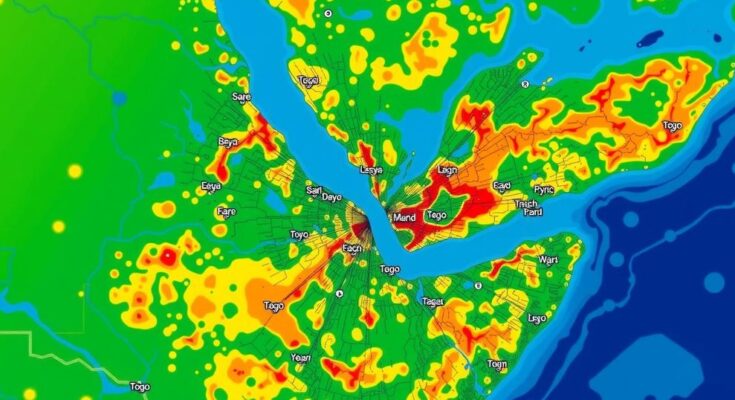A delegation from Burkina Faso and Togo participated in a knowledge-sharing mission in Sweden and Italy focused on improving flood forecasting and early warning systems. The trip included visits to key meteorological and hydrological institutions, where participants learned about operational practices and strategies for effective disaster management. Insights gained aim to enhance flood warning systems back home, with the intent of developing standardized procedures based on successful international models.
Experts from Burkina Faso and Togo recently engaged in a knowledge-sharing initiative focused on flood forecasting and early warning systems, traveling to Sweden and Italy for this purpose. This endeavor, which took place from October 16 to 23, 2024, aimed to enhance their capacities in disaster management through improved operational protocols. The delegation of 19 specialists first visited Norrkoping, Sweden, where they observed the methodologies utilized by the Swedish Meteorological and Hydrological Institute (SMHI) in producing and disseminating meteorological forecasts. Their stay in Sweden also included a visit to Malmo, where local officials discussed the importance of managing solid waste to mitigate urban flood risks. The experiences gained emphasized the significance of effective waste management systems to avoid floods exacerbated by canal blockages. Following the Swedish segment, the delegation proceeded to Italy, where they were welcomed by the Civil Protection agency in Rome. Here, attendees learned about hydrometeorological hazard monitoring and communication strategies that facilitate inter-agency collaboration regarding flood warnings. Their visit continued in Genoa, at a regional Civil Protection Center, where the focus was on leveraging local data for enhanced flood forecasting processes. The discussions culminated in Savona with the CIMA Foundation, which underscored the necessity for an integrated approach involving science and technology to develop effective monitoring and forecasting tools. A critical insight gained from their trip to Italy was the urgent need for a cohesive national legal and operational framework for flood risk management. This framework must delineate clear roles and responsibilities at all government levels and promote effective inter-institutional communication and coordination. The knowledge acquired during this exchange is expected to bolster the flood warning systems and disaster risk management frameworks in both Burkina Faso and Togo. Moving forward, it is anticipated that these nations will develop standardized operating procedures for their national flood warning systems, incorporating the valuable lessons gleaned from their observations in Sweden and Italy. This initiative received technical support from SMHI, AGRHYMET, and CIMA, which are all dedicated to assisting Burkina Faso and Togo in refining their flood forecasting capabilities. The World Meteorological Organization (WMO) coordinated this mission as part of its technical assistance for the Hydromet project in Burkina Faso and the CREWS Togo project.
The knowledge-sharing mission between specialists from Burkina Faso and Togo represents a significant effort to enhance flood forecasting and early warning systems in response to the challenges posed by climate change and environmental degradation. These nations face ongoing threats from flooding, necessitating the development of robust systems to mitigate associated risks and improve community resilience. As part of their commitment to disaster risk reduction, the participating stakeholders seek to leverage successful practices observed in more industrialized nations such as Sweden and Italy, focusing on the integration of local data and improved inter-agency communication.
In conclusion, the knowledge-sharing mission undertaken by specialists from Burkina Faso and Togo stands as a critical step towards bolstering their flood warning systems and disaster management strategies. The insights gained from the operational practices in Sweden and Italy will inform the development of standard operating procedures, thereby enhancing their preparedness and response capabilities concerning flood risks. This collaboration, supported by international organizations, underscores the importance of building resilient communities through effective information sharing and strategic planning.
Original Source: www.miragenews.com




